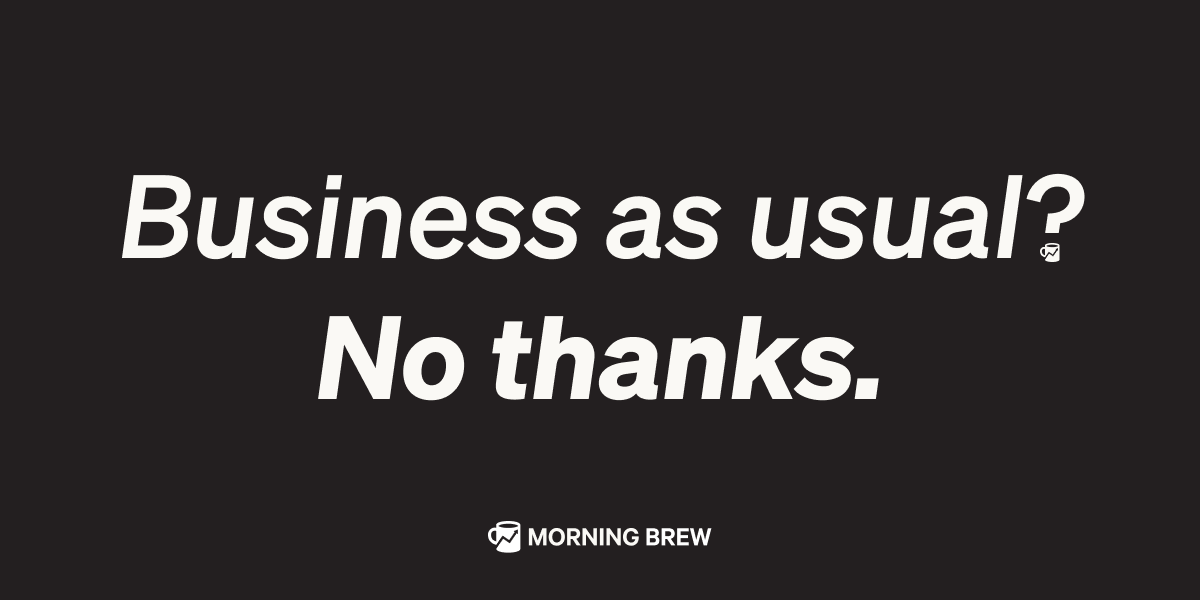
Thursday, November 20, 2025
The Briefing Leaders Rely On.
In a landscape flooded with hype and surface-level reporting, The Daily Upside delivers what business leaders actually need: clear, concise, and actionable intelligence on markets, strategy, and business innovation.
Founded by former bankers and veteran business journalists, it's built for decision-makers — not spectators. From macroeconomic shifts to sector-specific trends, The Daily Upside helps executives stay ahead of what’s shaping their industries.
That’s why over 1 million readers, including C-suite executives and senior decision-makers, start their day with it.
No noise. No jargon. Just business insight that drives results.
When anger rises, hold your tongue. Anger will pass, but cruel words can leave lifelong wounds. Speak with kindness, or remain silent.
Anger is a powerful emotion—quick, hot, and often blinding. In the heat of the moment, it’s easy to launch into words that feel justified, even necessary. But anger is temporary. The sting of cruel words is not.
This quote delivers a timeless warning: your emotional storm is short-lived, but your words can echo for a lifetime.
The Lasting Impact of Words
Words spoken in anger often outlive the emotion that created them.
You may calm down in minutes, but the person on the receiving end may replay those words for years.
Anger narrows your perspective. It pushes you toward exaggeration, blame, and assumptions that don’t reflect your true character or intentions. In those moments, you aren’t trying to communicate—you’re trying to wound.
Silence, on the other hand, is not weakness. It’s discipline. It’s emotional intelligence. It’s knowing that responding later—with clarity, compassion, and intention—is far more effective than reacting in the moment.

The Power of Choosing Kindness
The quote doesn’t just encourage restraint—it recommends kindness as your default strategy.
Kindness doesn’t mean avoiding hard conversations. It means approaching them without aggression, emotional spikes, or verbal harm.
Kindness builds trust, safety, and understanding—three things that can calm conflict better than any outburst ever will.
When you pause, breathe, let the wave of anger pass, and then choose your words with care, you:
protect relationships
prevent regret
preserve your peace
strengthen your emotional maturity
This is how you communicate without leaving scars.
Context & Origin
Though attributed to “Unknown,” this wisdom reflects themes found in:
Stoic philosophy (Marcus Aurelius, Seneca)
Buddhist teachings on mindful speech
Proverbs from diverse cultures
Across time and cultures, one truth remains universal:
the moment you speak in anger is often the moment you say something you can’t take back.
The exact phrasing of this quote appears in many modern versions, likely passed down, paraphrased, and polished across generations. Its power lies in its simplicity—and its truth.
Consider this our entire pitch:
Morning Brew isn’t your typical business newsletter — mostly because we actually want you to enjoy reading it.
Each morning, we break down the biggest stories in business, tech, and finance with wit, clarity, and just enough personality to make you forget you’re reading the news. Plus, our crosswords and quizzes are a dangerously fun bonus — a little brain boost to go with your morning coffee.
Join over 4 million readers who think staying informed doesn’t have to feel like work.
RESOURCE LIST: Tools for Mastering Anger & Mindful Speech
Books
“Emotional Intelligence” – Daniel Goleman
A foundational look at recognizing and managing your emotions.“Crucial Conversations” – Kerry Patterson et al.
Techniques for navigating difficult conversations without anger taking control.“Nonviolent Communication” – Marshall B. Rosenberg
A framework for speaking with clarity, empathy, and compassion.“The Daily Stoic” – Ryan Holiday & Stephen Hanselman
Daily guidance on self-control, wisdom, and thoughtful responses.
Articles & Online Resources
Greater Good Science Center (Berkeley):
Science-backed guides on anger management and compassionate communication.Psychology Today – Anger & Relationships Section:
Practical insights on how anger affects communication and emotional health.Mindful.org – Mindful Speech Practices:
Tools for pausing, observing emotions, and choosing deliberate responses.
Practical Techniques
The 10-Second Rule:
Pause and breathe before responding when emotions spike.The STOP Technique:
Stop • Take a breath • Observe your feelings • Proceed with intention.Journaling Prompts for Emotional Clarity:
What triggered my anger?
What story am I telling myself?
What outcome do I want from this conversation?
Insight Timer App:
Free meditations for grounding and emotional balance.
Relationship & Communication Resources
Gottman Institute:
Research-based tools for reducing destructive communication habits.Brené Brown’s Work on Vulnerability & Courage:
Insights on responding with integrity rather than reacting from fear or anger.
Inspirational Wisdom
Stoic Teachings:
Practical strategies for mastering emotional impulses.Buddhist Precepts on Right Speech:
Guidance on speaking truthfully, kindly, and at the right time.
Wall Street’s Morning Edge.
Investing isn’t about chasing headlines — it’s about clarity. In a world of hype and hot takes, The Daily Upside delivers real value: sharp, trustworthy insights on markets, business, and the economy, written by former bankers and seasoned financial journalists.
That’s why over 1 million investors — from Wall Street pros to Main Street portfolio managers — start their day with The Daily Upside.
Invest better. Read The Daily Upside.





